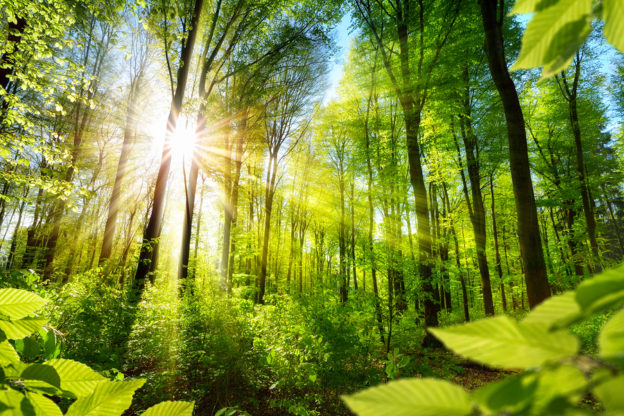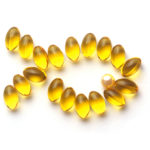By David Blyweiss, M.D., Advanced Natural Wellness
March 15, 2017
- Why your body craves the outdoors
- Japanese secret to health, healing and happiness
- Here’s what a stroll in the park can do for you
When you’re stuck inside on a sunny day, how many times do you look out the window and wish you were outdoors? It’s easy to imagine how great you’ll feel when you finally break free of your obligations and have a chance to enjoy the great weather.
This isn’t just a desire to get out of whatever dreary tasks or meetings you’d like to avoid. It’s your natural, primal instincts at work.
You see, our ancestors didn’t spend eight to 12 hours a day at the office. They didn’t stand in two-hour long lines to dispute a cable bill. Not a single one of them sat in a stuffy waiting area for hours on end while their car was being serviced.
No sir! These folks were outdoors in the fresh air from sun-up to sun-down. They walked with nature in a quest to hunt and gather food. They cooked, ate and celebrated in outdoor communal areas.
Open your arteries, improve blood flow for a new health miracle...
Did you know your circulatory system has over 60,000 miles of arteries, veins and other blood vessels, if stretched end to end?
But as you age, your blood vessels undergo changes, which may cause them to stiffen, thicken and get clogged.
GOOD NEWS! Doctors have now identified a “Miracle Molecule” inside your arteries that helps OPEN your arteries and IMPROVE blood flow.
It’s what Dr. Valentin Fuster calls it, "One of the most important discoveries in the history of cardiovascular medicine."To you, that means...
- Healthy blood pressure
- Sharper mind and memory
- Skyrocketing energy and muscular strength
- Increased pleasure and passion in the bedroom
- Improved circulation to every cell and organ in your body
Go here to discover a new natural way to significantly boost the levels of this miracle molecule in YOUR body NOW!
But these days the average person spends about 87% of their time inside buildings. They spend another 6% of their time in cars. This is 93% of their lives! It’s no wonder so many people are sick, depressed and unable to handle stress.
This is one place where we can learn a great lesson from the Japanese.
Japanese Secret to Health, Healing and Happiness
The Japanese have an interesting way of promoting both mental and physical health.
It’s called shinrin-yoku, which means “forest bathing.” Basically, it’s taking a walk with nature to bathe in the atmosphere. And it’s a cornerstone of health and healing in Japanese medicine.
Are You Suffering From...
- Love handles and a pot belly
- Romance that isn't what it used to
- Forgetfulness and inattention
- Low (or no) strength and endurance
- A sex drive that's shifted into neutral...or worse
If so...you may have Mature Male Burnout. Click here to discover more about this unique condition and what you can do about it.
I want to be clear that a walk with nature isn’t the same thing as taking a hike. Rather, it’s the process of slowing down and allowing yourself to take in the sights, sounds and smells of nature.
Over in Japan, they’ve learned that regular nature walks can…
- Boost your immune system by increasing NK cell activity. This increase lasts for more than 30 days after a single spent in the woods.
- Reduce levels of the stress hormone, cortisol
- Improve blood pressure
- Lower pulse rates
- Decrease activity of the sympathetic nerve system, which is activated during the flight-or-fight response
- Increase parasympathetic nerve activity, which relaxes the body and slows down functions that require a lot of energy
- Relieve feelings of hostility, depression and stress
- Boost feelings of energy and liveliness
And it doesn’t necessarily take a trip to the forest to gain the benefits of nature. Many of these same results can be achieved by simply taking a walk in a leafy park or other urban green environment.
Here’s What a Stroll in the Park can do for You
Trees and other greenery remove pollution from the air. When you’re surrounded by them, it gives your lungs and body the opportunity for a breath of fresh air – something your heart, brain and entire body craves.
Outdoor activities also expose you to more sunlight, which is crucial in the production of vitamin D. Low levels of this amazing nutrient are linked to heart disease, diabetes, cancer, depression, Alzheimer’s and even your weight.
So the more time you spend outside in the sun, the better off you will be.
Don’t keep yourself locked inside for another second. Head outside and rediscover the nature that surrounds you. Take a walk in the park, a hike in the woods or a trip to the closest national park or wildlife reserve in your area. Pack up the family and go on a camping trip.
Leave your smartphones and other personal devices behind while you immerse yourself in the sights, sounds and smells. Take your time and relish every minute of the experience.
I guarantee by the end of one of these little journeys you’ll feel healthier and happier than you have in a long time. You’ll also sleep better and find yourself holding less stress than you would otherwise.
SOURCES:
Li Q. Effect of forest bathing trips on human immune function. Environ Health Prev Med. 2010 Jan; 15(1): 9–17.
Park BJ, et al. The physiological effects of Shinrin-yoku (taking in the forest atmosphere or forest bathing): evidence from field experiments in 24 forests across Japan. Environ Health Prev Med. 2010 Jan;15(1):18-26.
Morita E, et al. Psychological effects of forest environments on healthy adults: Shinrin-yoku (forest-air bathing, walking) as a possible method of stress reduction. Public Health. 2007 Jan;121(1):54-63.
Nowak DJ, et al. Tree and forest effects on air quality and human health in the United States. Environ Pollut. 2014 Oct;193:119-29.







